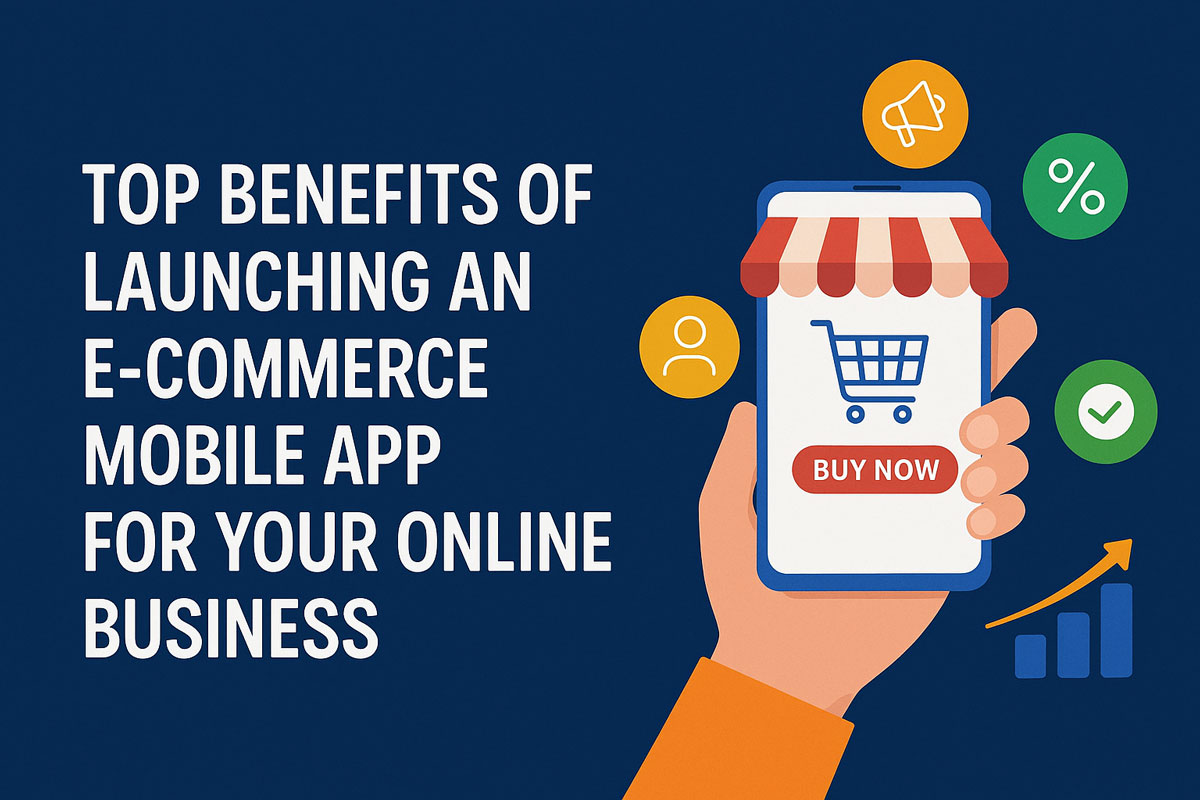
21 August 2025 | Admin
In today’s fast-paced digital era, consumers expect convenience, speed, and personalization. As more shoppers rely on smartphones to make purchases, having a mobile app is no longer a luxury for e-commerce businesses, it's a competitive necessity. Whether you’re an established retailer going online or a startup launching a store, investing in a mobile app can significantly enhance your business performance.
This blog explores the essential features of a good e-commerce app, key advantages, possible limitations, and how mobile apps compare to responsive websites.
Features to Include in an E-commerce Mobile Application
-
A great mobile app doesn’t just look good it functions efficiently to serve users better. Here are some essential features:
-
Easy Login/Sign-Up
Enable sign-up through OTPs or social logins to speed up registration and reduce user friction.
-
Smooth Navigation & Product Filters
Help users find what they need faster with advanced filters by category, price, brand, size, and ratings.
-
Secure Payment Gateways
Support multiple trusted payment methods cards, UPI, wallets with end-to-end encryption.
-
Push Notifications & In-App Offers
Keep users updated on deals, new arrivals, or abandoned carts to drive conversions.
-
Wishlist, Cart & Order Tracking
Let customers save favourites, manage orders, and track deliveries easily.
-
Real-Time Chat Support or AI Chatbot
Answer queries 24/7 through live chat or AI-powered assistance for improved customer support.
Key Benefits of Building an E-commerce Mobile App
-
E-commerce mobile apps unlock new levels of performance and engagement. Here’s how:
-
Enhanced User Experience
Faster loading speeds, intuitive interfaces, and smoother navigation improve shopping satisfaction.
-
Personalized Recommendations
AI-based suggestions increase cross-selling and up-selling opportunities based on user behaviour.
-
Increased Conversion Rates
Streamlined checkout processes and faster performance result in more completed purchases.
-
Higher Customer Retention
Regular app use is encouraged through rewards, loyalty programs, and personalized notifications.
-
Offline Functionality & Faster Load Times
Parts of the app can work offline while the app loads faster than most mobile sites.
-
Boost Brand Loyalty
Apps stay on the user's phone, giving your brand constant visibility.
-
Include Points:
- Customer retention improves with personalized offers, seamless UI, and reward systems
- Better UX encourages repeat purchases and builds user trust
Advantages and Disadvantages of E-commerce
Advantages:
-
24/7 Business Availability: Sales continue even when your physical store is closed.
-
Global Reach: Sell across cities, states, or countries.
-
Lower Overhead: No rental or maintenance costs of physical stores.
-
Smart Inventory Management: Track stock levels and automate restocking.
Disadvantages:
-
No Physical Contact: Customers can’t touch or try before buying.
-
Security Risks: Data leaks and fraud are concerns.
-
Intense Competition: Both big players and niche competitors are online.
-
Logistics Dependence: Delivery issues can impact reputation.
Why Mobile Apps Are Better Than Responsive Websites
-
Even with a mobile-optimized website, apps bring key advantages:
-
Better Performance
Apps are tailored for performance and load significantly faster than mobile web pages.
-
Enhanced Mobile UX
Better design for touch navigation, readability, and performance.
-
Push Notifications = More Engagement
Communicate directly with users even when they’re not actively using the app.
-
App-Exclusive Discounts
Provide app-only deals to drive installs and user loyalty.
Final Thoughts
E-commerce mobile apps are the future of online retail. They provide a superior customer experience, drive sales, improve retention, and give your brand a permanent space in your customer’s daily digital life.
If you're serious about scaling your business and keeping users engaged, a well-designed mobile app is one of the smartest investments you can make.

